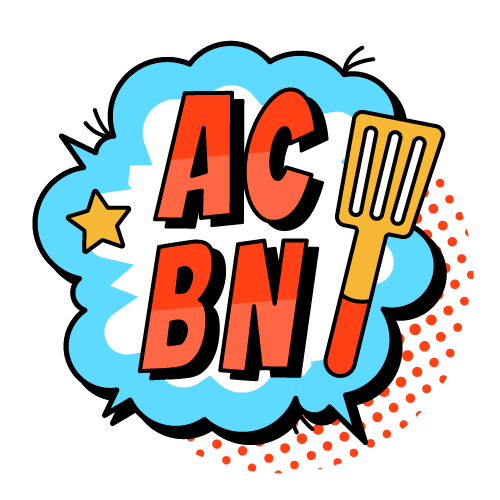Dear writer: Advice on cultivating connection in the internet age
Seasoned newsletter writer and Substack food fellow Scott Hines reflects on a career in internet writing, the power of voice and sticking to a regular drumbeat of posts
We asked Scott Hines of The Action Cookbook Newsletter about cultivating your own voice and creating a polymath career these days. Read on for Scott’s advice, or listen to him read it aloud above.
Dear writer: How does a writer create a career, a following, and a connection with an audience in this atomized internet age?
Dear writer,
There’s only one thing that people can’t get somewhere else on the internet, and that’s you.
I find this is the most important thing to keep in mind as a writer trying to build a lasting, sustainable career. The things you write about may change, but the voice behind them does not. Re-frame your thinking and see that you aren’t selling just a single post, a single idea, a single topic—you’re selling your voice.
That doesn’t mean that you have to give your whole self to an audience, and frankly, you shouldn’t. Draw boundaries in your own mind, and hold to them; it’s good for you. But when you write about something—about anything—write in a way that’s true to yourself, and not tailored to the expectations (real or imagined) of editors, publishers, readers, or content cycles.
When you present an authentic voice to the world, you’re presenting something that can’t be copied, spun off, undercut, or driven into the ground; you’re offering something durable in an age and a medium where seemingly nothing lasts.
I realized a long time ago that I don’t want to write about just one thing. It’s not how I think, and it’s not how I read, either. For about six years, earlier in my career as an internet writer, I wrote primarily about college football. It’s a thing that I enjoy, and writing about it was fun, at least for a time. As time went on, though, I felt like I’d said all I had to say about the sport. Chasing a single topic meant that things got repetitive, monotonous, even tedious, and I often felt like my writing was too often unconsciously influenced by the voices of others in that same sphere.
When that phase of my career ended, I started The Action Cookbook Newsletter in 2019 as a place to continue writing. I just wasn’t really sure what I planned to write about. Starting out, I wrote a few mostly forgettable things along the lines of what I’d been doing previously but soon realized that with a fresh slate, no editor, and a then-small audience, I could write about anything.
“What’s your newsletter about?” can be the hardest question for me to answer, because there’s no zippy elevator pitch for the kind of all-over-the-place writing I do. There is a clear throughline to it all, though, and it’s me and my voice. Your voice is your only unique product, and it’s also your greatest tool.
Once, I wrote a sentimental post about a day at the ballpark with my family, reflecting on how quickly my still-quite-young children were growing up. It wasn’t the kind of thing I could’ve pitched to an established publication; it was the sort of thing I could only write for myself.
The response was immediate.
Even having written hundreds of things online to that point—including a few that had reached a genuinely large audience—I’d never gotten the kind of responses I did to this post. People responded emotionally, and that opened a new connection with readers, one I’d never felt in the past.
I loosened the grip of my internal editor, the one who’d always kept my heart halfway out of my writing, and let things come out like never before. I wrote more about my experiences as a parent, but about plenty of other things in my life too. I wrote about finding joy in royally screwing up a batch of soup dumplings and finding solace during the early days of the pandemic watching reruns of Diners, Drive-Ins and Dives. I started sharing food and drink recipes, and quickly made that part of my weekly rotation of posts. I never approached it like an expert chef or mixologist, though (as I am neither), but rather someone standing next to you in the kitchen, telling jokes as we pull together dinner.
There are times where life gets busy and the well runs dry and it seems like an impossible task to pull words from thin air and have them make sense, but that connection to readers makes it worth pushing through. It makes it possible to push through.
People often ask me how I write as much as I do, and it’s a fair question; I publish three times a week, every week, and I’ve done so for more than three years running. This comes on top of having a full-time job, a spouse, two children, and two dogs; admittedly, it’s a lot. I’ll usually offer up a half-joking, half-serious “I don’t know” in response, but I do know.
The practical answer is that I write almost exclusively at night, in the three hours or so between when my kids go to bed and when I do, and I do everything I can to maximize that time. I jot down copious notes in advance—full outlines, if possible—whenever ideas occur to me, writing them down on my phone or on Post-It notes stuck in my wallet; even the barest shred of an idea, a title phrase alone, might turn into something real later. I try to make sure that when I’m sitting down to write, I’m ready to go, and the blank page in front of me is only the final step in a long process. Writing as frequently as I do then becomes a help, not a hindrance—my writing muscles are loose and well-prepared, and I’ve gotten adept at wrestling a thousand words from half an idea. Writing is like running, I’ve found: if you only do it once in a while, it sucks and hurts, but if you do it every day, at some point it’ll start to feel easy. Natural, even.
The bigger answer lies in that connection, though.
Having a built-up sense of trust with readers means that, practically speaking, I can write about whatever I want, as long as I do it in the same voice they’ve come to know. That ability to write whatever I want keeps the creative juices flowing; I can write about quirky regional foods, endearingly bad architecture, fuzzy memories of a mediocre bar, the breakneck speed of parenting, the complicated relationship between sports and identity, or I can even conceive a longform reimagining of the story of Rudolph the Red-Nosed Reindeer as a New Yorker-style profile.

The freedom to do anything means you never run out of topics.
It means the world to me when people tell me that my writing made them feel something: that they saw something of themselves in it or that I made them feel they weren’t alone in their experiences. There are times where life gets busy and the well runs dry and it seems like an impossible task to pull words from thin air and have them make sense, but that connection to readers makes it worth pushing through. It makes it possible to push through.
“What’s your newsletter about?” can be the hardest question for me to answer, because there’s no zippy elevator pitch for the kind of all-over-the-place writing I do. There is a clear throughline to it all, though, and it’s me and my voice. Your voice is your only unique product, and it’s also your greatest tool.
Find your voice, and you will find your readers.
Find your readers, and the words will flow easier than you ever thought possible.
Yours,
Scott Hines
Writer and Substack food fellow Scott Hines pens a thrice-weekly publication sharing food and drink creations alongside essays on parenthood, sports, culture, and more. He lives in Louisville, Kentucky, with his wife and two young children, as well as two obnoxious dogs.
Subscribe to The Action Cookbook Newsletter, and follow Scott on Twitter.
This is the seventh in a recurring series of longform writer advice, following Robert Reich’s advice on sharing your personality, Helena Fitzgerald’s advice on isolation, Alicia Kennedy’s advice on learning to listen, Kate Lindsay’s advice on creating trust with your readers, Anna Codrea-Rado’s advice on learning to celebrate how far you’ve come, and Mason Currey’s advice on creative growth.
Could you use some advice or inspiration from a fellow writer about creativity, motivation, and the writing life? Submit your question for consideration for a future advice column by leaving it in the comments below.












Share this post